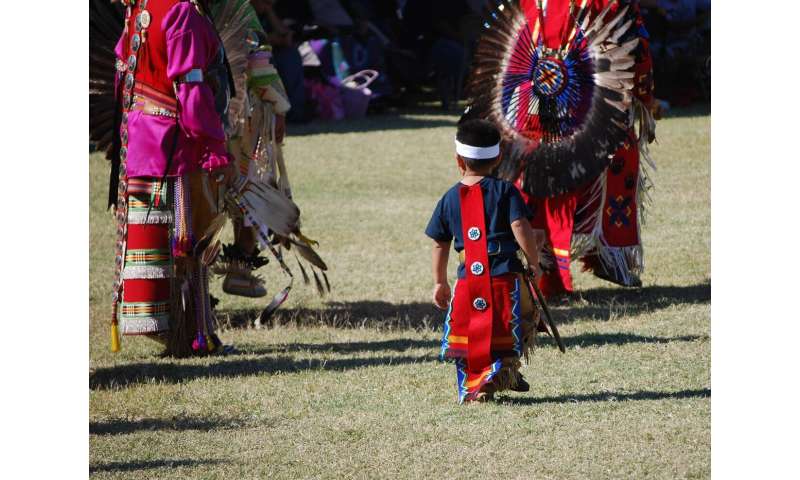Study supports preservation of Indian Child Welfare Act

The U.S. Supreme Court ruled today in Haaland v. Brackeen against overturning the Indian Child Welfare Act (ICWA) that has kept most Native children with Indian families since 1978.
Research led by Ashley Landers, assistant professor of human development and family science at The Ohio State University, and Sandy White Hawk, director of the First Nations Repatriation Institute, shows that Native adoptees and fostered individuals are more likely to be abused, suffer from depression and consider suicide than other adoptees. Their work was submitted to the court in an effort to preserve the legislation.
Their 2018 study is published in Children and Youth Services Review.
"We know that reconnecting to culture is helpful," Landers said.
Their research also showed that before the passage of the ICWA, up to 35% of all American Indian children in the U.S. had been separated from their families, and 90% percent of their foster or adoption placements were in non-Native homes.
White Hawk, who was taken from her Lakota tribe at 18 months and adopted by a white woman who abused her, is the subject of the documentary film "Blood Memory: A Story of Removal and Return."
More information:
Ashley L. Landers et al, Does reunification matter? Differences in the social connection to tribe and tribal enrollment of American Indian fostered and adopted adults, Children and Youth Services Review (2018). DOI: 10.1016/j.childyouth.2018.09.019
Provided by The Ohio State University